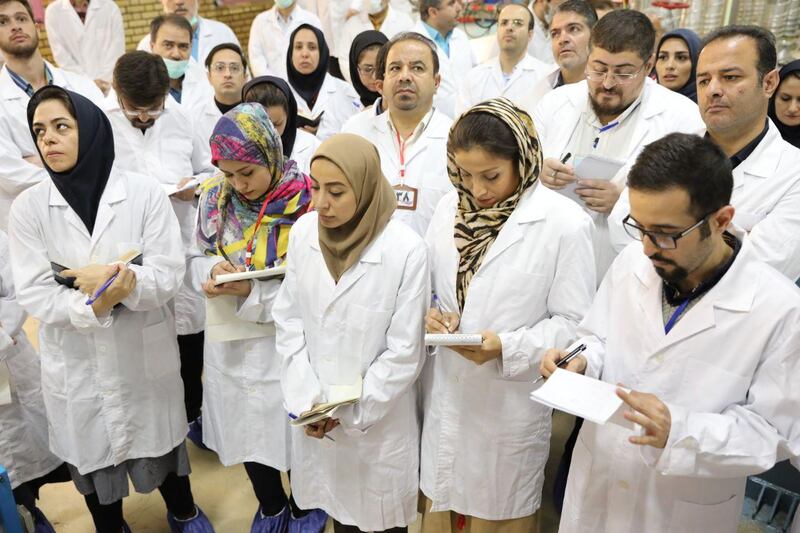Iran said on Saturday that it is now enriching uranium to five per cent, after a series of steps back from its commitments under the landmark nuclear accord signed with major powers in 2015.
The deal set a 3.67 per cent limit for uranium enrichment but Iran announced it would no longer respect it after Washington unilaterally abandoned the agreement last year and reimposed crippling sanctions.
"Based on our needs and what we have been ordered, we are currently producing five percent," Atomic Energy Organisation of Iran spokesman Behrouz Kamalvandi told a press conference.
He said Iran has the "capacity to produce five percent, twenty percent, sixty percent, or any percentage" of enriched uranium, a claim often repeated by Tehran.
Uranium enrichment is the sensitive process that produces fuel for nuclear power plants but also, in highly extended form, the fissile core for a warhead.
The current five per cent level exceeds the limit set by the accord but is less than the 20 per cent Iran had previously operated and far less than the 90 per cent level required for a warhead.
In its fourth step away from the agreement, Iran resumed enrichment at the Fordow plant south of Tehran on Thursday, with engineers feeding uranium hexafluoride gas (UF6) into the plant's mothballed enrichment centrifuges.
Iran was already enriching uranium at another plant in Natanz.
Tehran emphasises the measures it has taken are swiftly reversible if the remaining parties to the deal - Britain, China, France, Germany and Russia - find a way to get around US sanctions.
On July 1, Iran said it had increased its stockpile of enriched uranium to beyond a 300-kilogramme maximum set by the deal, and a week later, it announced it had exceeded the enrichment cap.
The third move had it firing up advanced centrifuges on September 7 to enrich uranium faster and to higher levels.
Also on Saturday, Iran defended its decision to block a UN inspector from a nuclear site last week.
Mr Kamalvandi said that the Iranian government "legally speaking" had done nothing wrong in stopping the female inspector from touring its Natanz nuclear facility on October 28.
Iran alleges the inspector tested positive for suspected traces of explosive nitrates. The UN's nuclear watchdog has disputed the claim.
"The reason that this lady was denied entrance was that she was suspected of carrying some material," said Mr Kamlavandi, referring to the allegations.
He added that Iran was exercising its "rights" under its agreement with the International Atomic Energy Agency when it revoked "her entrance and accreditation."
It marked the first known instance of Iran blocking an inspector amid tensions over its collapsing nuclear deal with world powers. The US unilaterally withdrew from the deal over a year ago.
Mr Kamalvandi said Iran hasn't imposed any restriction on inspections.
"We welcome the inspections," he said, while warning against using them for "sabotage and leaking information."






